Civil Liberties, Civil Rights, Gaza, genocide, Human Rights, Right To Dissent, Targeting Muslims, U.S. Militarism, War Resister, worker's rights
Podcast: Play in new window | Download

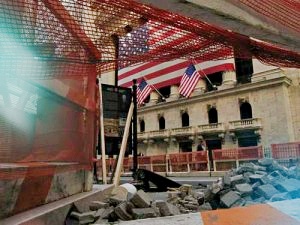
Oligarchs and Billionaires Reshape Economic-Political Landscape
We’re living at a time of profound changes in the institutions that previously governed our society. One hundred years ago V.I Lenin, the leader of the Russian Revolution, observed that sometimes nothing changes for decades and at other times decades-long changes occur within several days.
This is what is happening now in America as the old institutions, the Democratic Party, the Republican Party, the universities, the media, the government, including Congress, governmental agencies, the elite law firms, educational institutions and most recently long-standing tariff policy are being reconfigured as instruments of authoritarian rule.
More than 800 billionaires form the upper crust in America. Three people alone own as much as the entire bottom, half of the population. Democracy, the rule of the people, however aspirational, no longer prevails. We have become an oligarchy, a majority of our people ruled by a relative handful. Our institutions have rapidly changed to reflect this new reality.
We are governed by an amoral man who’s only interest is in power and money, which is another form of power.
Guest – Professor Henry A. Giroux, author of many books and articles, including most recently a piece in Counterpunch titled Abducting Bodies, Silencing Dissent : Mamoud Kailil and the Rise of State Terrorism. Professor Giroux currently holds the McMaster University Chair for Scholarship in the Public Interest in the English and Cultural Studies department and is the Pablo Frère, Distinguished Scholar in Creative Pedagogy. Henry Giroux has authored many books, most recently with Anthony DiMaggio, titled, Fascism on Trial: Education, and the Possibility of Democracy.
—-
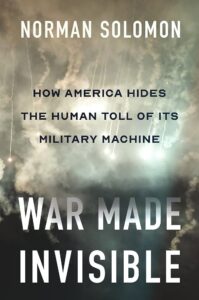

Critical Media Update: War Made Invisible
With respect to the Israeli/U.S. war in Gaza, peace talks limp along; Israel has accelerated its war in Gaza and the West Bank; and recent remarks by Israeli Prime Minister Benjamin Netanyahu and president Donald Trump, make it clear that both countries intend, if they can do it, to ethnically cleanse all of the Palestinian people from Palestine, thereby bringing about the expected end result of their genocidal war on the Palestinian people.
Meanwhile here in the United States, President Trump has seized upon the claim of rampant anti-Semitism on our nation’s college and university campuses to deport non-U.S. citizen leaders in the movement on the campuses in support of the Palestinian side in the war, and to withhold tens of millions of dollars from the campuses until they eliminate the “anti-Semitic atmosphere on our campuses.” And, according to our guest today, press reporting in the mainstream media on the war has been less than clear and balanced.
Guest – Norman Solomon is the co-founder of RootsAction.org and Executive Director of the Institute for Public Accuracy, and is, in fact, the author or co-author, of 12 books, most touching on today’s topic in either close or tangential ways. His books include War Made Easy: How Presidents and Pundits Keep Spinning Us to Death. The paperback edition of his latest book, “War Made Invisible: How America Hides the Human Toll of Its Military Machine,” includes an afterword about the Gaza war.

—————————-
Civil Liberties, Civil Rights, Gaza, genocide, Human Rights, Targeting Muslims, War Resister
Podcast: Play in new window | Download
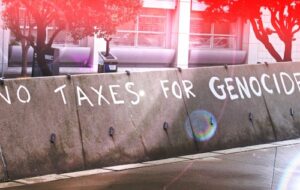
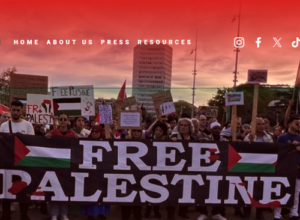
Taxpayers Against Genocide
The Israeli genocide in Gaza continues without any end in sight, resulting in the slaughter of over 50,000 Palestinians, with over 113,000 wounded. Meanwhile, the United States is escalating its support for Israel. Donald Trump is sending obscene amounts of military aid to Israel to help fuel the extermination of the Palestinian people, while threatening to take over the Palestinian homeland and turn it into the “Riviera of the Middle East.”
But most Americans disapprove of Trump’s handling of the war in Gaza; support for Israel in the United States is at the lowest its been in 25 years and support for the Palestinians is up 6 points since last year. About 60% of Americans support a ceasefire in Gaza.
So the question is what can be done to restrain the US government from its costly, illegal, and inhumane support for Israel’s war in Gaza?
Taxpayers Against Genocide – TAG- has an answer. TAG is a grassroots mass movement comprising of over 1,000 U.S. taxpayers. Countless federal tax payers repeatedly called, emailed, petitioned and peacefully protested their congressional representatives and U.S. government officials to stop using their tax dollars to fund what had become clear was a genocide in Gaza. After almost one year of having their congress members refuse to meet or consider their constituents’ pleas, a group of Northern California taxpayers formed TAG in fall 2024 and filed a federal class action lawsuit arguing that it is illegal to use tax dollars for genocide. But the case was dismissed on February 10th, 2025.
Undaunted, TAG is not giving up. On February 19th TAG launched a National Call to Action. With the support of National Lawyers Guild attorneys, on the day this program will be broadcast, April 7th, 2025, TAG will submit a comprehensive report to the United Nations Human Rights Council’s Universal Periodic Review (UPR) and on April 30th, TAG will file an official complaint with the Inter-American Commission on Human Rights
Guest – Attorney Margaret DeMatteo is a movement lawyer and former class member of Donnelly et al. v. Thompson, et al. , a class action brought by the grassroots Northern CA group Taxpayers Against Genocide. She is currently working on an imminent submission to the United Nations Human Right Council’s Universal Periodic Review of the United States, based on its complicity in the ongoing genocide in Gaza.
Guest – Attorney Huwaida Arraf is a Palestinian American attorney and human rights activist. She is a co-founder of the International Solidarity Movement, supporting Palestinian popular resistance on the ground in the occupied Palestinian territory and also an organizer with the Freedom Flotilla to break the siege on Gaza. In the US, she practices civil rights law and is an active member of the National Lawyers Guild.
—-
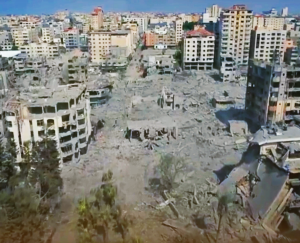

The Dangerous Militarization of AI and the Profiteering Behind It
A recent exposé by investigative journalist Peter Byrne, titled One Ring to Rule them All, and published by Project Censored, reveals the unsettling extent of Silicon Valley’s deepening ties to the military-industrial complex. Byrne traces the rise of Palantir Technologies—founded with seed money from the CIA and ominously named after the all-seeing stone in Tolkien’s Lord of the Rings. Today, Palantir stands as a $200-billion powerhouse, fueling AI-driven military operations across the globe.
Byrne’s investigation uncovers how Palantir and its sister company Anduril Industries, has built an AI weapons consortium that appears to skirt antitrust laws, monopolize Pentagon contracts, accelerate the militarization of artificial intelligence, and bypass essential democratic oversight. His reporting lifts the curtain on the hidden architecture of autonomous weapons systems and exposes Silicon Valley’s quiet but profound military takeover. At the heart of the story is a troubling shift: AI systems that could soon make life-and-death decisions without human intervention.
Byrne also draws a sobering parallel between today’s AI-fueled war economy and the era of the Gilded Age robber barons. But this time, the stakes are even higher—not only economic inequality, but also the global proliferation of algorithmic warfare. His work raises a critical question: Are we witnessing the construction of a 21st-century “Ring of Power” capable of dominating both markets and militaries?
Guest – Peter Byrne is a veteran investigative reporter with decades of experience uncovering the dark intersections of Silicon Valley, Wall Street, and the ever-expanding military-industrial complex. His work, frequently featured by Project Censored and other independent outlets, has consistently exposed the hidden mechanisms behind surveillance, privatization, and unchecked corporate power.
——————
Civil Liberties, Civil Rights, Gaza, genocide, Human Rights, Targeting Muslims, Violations of U.S. and International Law
Podcast: Play in new window | Download

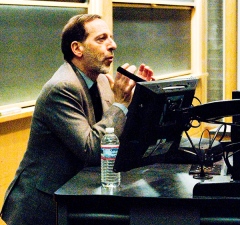
The Silencing of Genocide Critics
The International Court of Justice, known as the World Court, found it plausible that Israel was committing genocide against the Palestinian people living in Gaza. Thereafter the International Criminal Court issued an arrest warrant for Israeli Prime Minister Benjamin Netanyahu and his defense minister Yoav Gallant.
Since October 8, 2023 Israel has murdered, on an industrial scale, upwards of 70,000 people and reduced most of the Gaza strip to a pile of rubble. They used American bombs and received American diplomatic cover and financial aid. On March 18, 2025, Israel unilaterally broke a recent cease-fire killing 400 people, including 174 children, in one night. Israel is carrying out the final stage of the genocide. The people living in Gaza will either be deported or killed.
The philosopher Hannah Arendt wrote “ The death of human empathy is one of the earliest and most telling signs of a culture about to fall into barbarism.“ Israel has fallen. It is a profound historical truth, as Mark Twain observed 100 years ago, that you can’t have imperialism abroad and a republic at home. The Democratic rights that we citizens of the United States hold are being suppressed here as an illustration of this maxim.
American partnership with Israel’s war has worked to destroy our liberal universities here at home. It started with the trustees at Columbia University totally surrendering the universities academic freedom, self government, and free speech in return for the promise by the Trump administration of restoring $400 million in federal funding. Columbia has been more than compliant in hopes that they’ll get the money.
Using the pretext of providing security for their Jewish students, American universities across the country enforce the silencing of critics of the ongoing genocide. They have not fought back to preserve the integrity of their institutions and the freedom of their students.
Law and Disorder: The Hundred Years’ War On Palestine Interview
Guest – Columbia University Professor Rashid Khalidi is a Palestinian American historian of the Middle East, the Edward Said professor of Modern Arab Studies at Columbia University, and Director of the Middle East Institute of Columbia School of International and Public Affairs. He was educated at Yale and Oxford universities and is the author of many books on the Middle East. He is also the author of Under Siege: PLO Decision Making During the 1982 War, Brokers of Deceit: How the US Has Undermined Peace in the Middle East and recently The Hundred Years’ War on Palestine: A History of Settler Colonialism and Resistance, 1917–2017.
—-
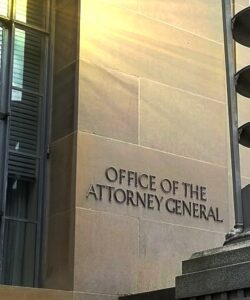
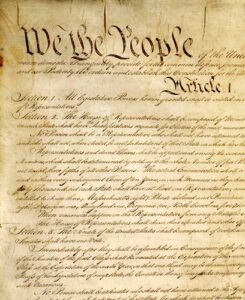
Is The Trump Administration Upholding The Bedrock Of America’s Democracy?
On March 3rd, the American Bar Association issued a statement titled, The ABA rejects efforts to undermine the courts and the legal profession. They called upon the Trump Administration to adhere to four major principles of law that have, they say, “guided our country for more than 200 years.” The four principles are: to defend judges and the courts; to acknowledge the role of the courts; to adhere to the rule of law; and to respect the separation of powers and the three co-equal branches of government with distinct duties and responsibilities. These principles have, they state, been the “bedrocks of American democracy.” The ABA statement accuses the Trump administration of violating these principles in several ways. Law and Disorder co-host Stephen Rohde takes our guest seat to evaluate whether the Trump Administration is upholding, or violating the principles that the ABA calls “the bedrock of America’s democracy.”
Guest – Stephen Rohde is a writer, lecturer and political activist. For almost 50 years, he practiced civil rights, civil liberties, and intellectual property law and has won significant First Amendment victories in state and federal appellate courts. He is a past chair of the ACLU Foundation of Southern California and past National Chair of Bend the Arc, a Jewish Partnership for Justice. He is a founder and current chair of Interfaith Communities United for Justice and Peace; member of the Board of Directors of Death Penalty Focus, and a member of the Black Jewish Justice Alliance. Mr. Rohde is the author of the books
American Words of Freedom: The Words That Define Our Nation and Freedom of Assembly plus numerous articles and book reviews on civil liberties and constitutional history for the Los Angeles Review of Books, American Prospect, LA Times, Ms. Magazine, Los Angeles Lawyer, LA Progressive, and Truthdig
.

—————————–
Civil Liberties, Civil Rights, Freedom Of Speech, Human Rights, Supreme Court
Podcast: Play in new window | Download
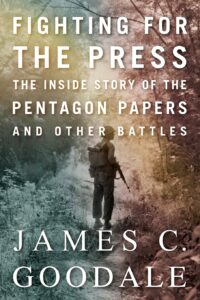
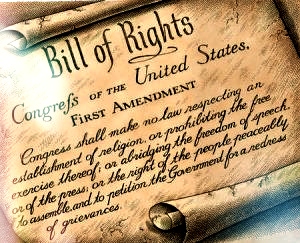
James Goodale: Fighting for the Press and Freedom of Speech
Donald Trump has wasted no time in his second term attacking free speech and freedom of the press. He arrested Mahmoud Khalil, a permanent US resident with a green card and a student visa, and is trying to deport him (until restrained by a federal judge) because Khalil led pro-Palestinian protests at Columbia University. He has threatened to deport other students for their pro-Palestinian protests. Trump banned the Associated Press from White House press briefings and Air Force One for using the term “Gulf of Mexico” instead of “Gulf of America.”
He also banned Reuters News Service and Huffington Post from the press pool. He has issued Executive Orders which federal agencies have cited as authority to ban forbidden words from government websites such as the words Diversity, Equity, and Inclusion. He’s threaten to pull federal funding from over 50 universities for teaching aspects of American history such as slavery and racism, which he labels “divisive.” He has encouraged congressional investigations against Democrats who served on the January 6 Committee.
He has promoted a definition of “antisemitism” which would punish political criticism of Israel. And he has filed lawsuits seeking hundreds of million of dollars in damages against ABC, CBS, Media Matters for America, and newspapers based on how they have reported on him, his candidacy, and his actions as President.
Guest – James Goodale is the former vice president and general counsel for The New York Times and, later, the Times’ vice chairman. He is the author of Fighting for the Press: The Inside Story of the Pentagon Papers and Other Battles. Goodale represented The New York Times in four of its United States Supreme Court cases, including Branzburg v. Hayes, in which the Times intervened on behalf of its reporter Earl Caldwell. The other cases were New York Times v. Sullivan, New York Times Co. v. United States (the Pentagon Papers case), and New York Times Co. v. Tasini. He has been called “the father of the reporter’s privilege” in the Hastings Law Journal because of his interpretation of the Branzburg case.
—-
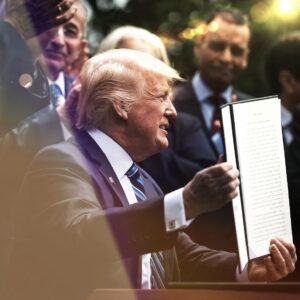
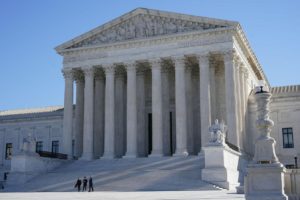
Pushing The Limit Of Presidential Power
Since being sworn in for his second term on January 20, 2025, Donald Trump has signed (with a big black marker) almost 90 Executive Orders or EOs, stretching the limits of Presidential power. In response, over 100 lawsuits have been filed challenging the most egregious and questionable EOs. Some of the most sweeping orders seek to totally dismantle over 70 years of laws, policies, and programs promoting Diversity, Equity, Inclusion, and Accessibility. These EOs were immediately challenged in court. Meanwhile, some companies have surrendered to Trump and terminated their Diversity programs, while civil rights groups are fighting back.
Stephen’s recent article – First They Came For Mahmoud Khalil
Guest – Stephen Rohde is a writer, lecturer and political activist. For almost 50 years, he practiced civil rights, civil liberties, and intellectual property law and has won significant First Amendment victories in state and federal appellate courts. He is a past chair of the ACLU Foundation of Southern California and past National Chair of Bend the Arc, a Jewish Partnership for Justice. He is a founder and current chair of Interfaith Communities United for Justice and Peace; member of the Board of Directors of Death Penalty Focus, and a member of the Black Jewish Justice Alliance. He is the Special Advisor on Free Speech and the First Amendment for the Muslim Public Affairs Council.
Mr. Rohde is the author of the books American Words of Freedom: The Words That Define Our Nation and Freedom of Assembly and numerous articles and book reviews on civil liberties and constitutional history for the Los Angeles Review of Books, American Prospect, LA Times, Ms. Magazine, Los Angeles Lawyer, LA Progressive, Truthdig and other publications.

———————————-
Civil Liberties, Civil Rights, Illegal Immigration, Targeting Muslims, War Resister, worker's rights
Podcast: Play in new window | Download

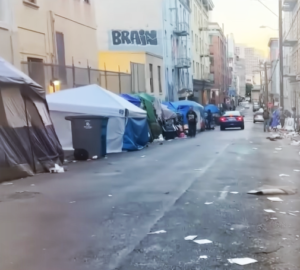
How Weak Opposition Strengthened Capitalist Order
We, as ordinary people, are experiencing a profound change in the nature of who holds power in America today. Our constitutional democracy, however limited by race and class, is being replaced by an oligarchy, that is to say, the rule by the super rich few over the many. The separation of powers between the Congress, the Executive, and the Supreme Court has all but been eliminated. We are getting what the oligarchs wish for, “a unitary executive” where Trump is attempting to rule by executive decrees.
He and Musk want to cripple, shrink, and eliminate various government agencies that we have won to protect us. They include the Department of Education, the Environmental Protection Agency, the National Institute of Health, the National Labor Relations Board, and the Social Security Administration. They are perpetuating a hoax that all they want to do is eliminate fraud and waste and corruption.
Trump has now been in power for seven weeks. It took Hitler one month, three weeks, and two days to consolidate his dictatorship. He had legally been appointed as Chancellor. After a mentally unhinged person set fire to the German parliament, Hitler got a law passed revoking the German people’s civil liberties so they could not speak out or organize. Trade unions were banned. Then shortly thereafter he got the infamous “Enabling Act” passed which gave him the power to legislate by decree. His power was thus consolidated
Opposition by the Democratic Party to the transformation here in our country has been feeble. They welcomed Trump into the White House and pledged cooperation. Despite Trump‘s falling popularity – more people oppose him than support him – the Democrats have not mobilized people in the streets nor have they come up with a broad program for better wages, jobs, housing, healthcare for all, housing for the unhoused, the end of deportations, an opposition to the ongoing Palestinian genocide
Guest – Margaret Kimberley, a New York-based writer and activist. She has been an editor and senior columnist for Black Agenda Report since it’s inception in 2006. She is a contributor to the anthology In Defense of Julian Assange.
—-
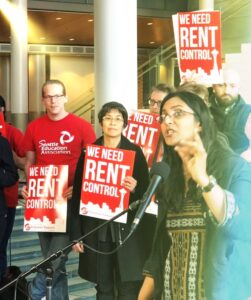
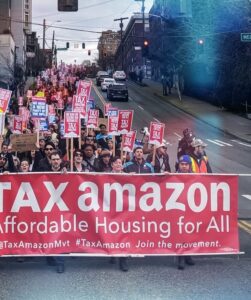
Advances For Workers Through Independent Political Action
It’s one thing to wring our hands in despair over the re-election of Donald Trump and decry his out of the gate authoritarian, neo-fascist assault on U.S. democracy and governance. It’s quite another to offer, and begin to employ, a comprehensive strategy for not only combating the new Trump Administration, but to also advance a political ideology that challenges conventional wisdom over what is needed to make our country a truly democratic country, and a country that meets the needs of all its people, not simply its billionaire class.
Yet the billionaire class just keeps getting richer and more powerful. Last year the world’s five richest billionaires increased their wealth by $542 billion. Elan Musk’s wealth alone is fast approaching half a trillion dollars. And globally we are seeing the highest levels of inequality in human history.
So today we’ve invited to the show a guest with a radical vision of what is needed to not only defend against Trump’s dictatorial moves and legislative plans, but in a vastly more profound way bring about the end of the unjust and exploitative capitalist system of the rich in America, and replace it with an equitable and democratic system of governance.
Guest – Kshama Sawant, a socialist economist who was elected to, and served 10 years on the Seattle, Washington City Council. Her election and her advancement of a strong progressive agenda on the Council was often national news. WorkersStrikeBack.org

———————–
Civil Liberties, Civil Rights, Criminalizing Dissent, Freedom Of Speech, Gaza, genocide, Human Rights, War Resister
Podcast: Play in new window | Download

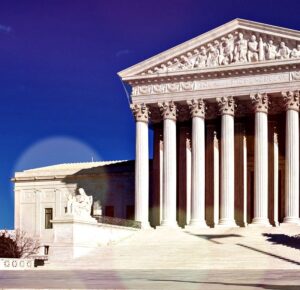
Federal Court Challenges to Trump Administration Arguments
The number of active lawsuits in federal courts challenging Trump administration arguments has now topped 100. In 21 of those cases, judges have already issued temporary restraining orders or preliminary injunctions, effectively stopping, at least for now, parts of Trump’s agenda.
For example, as reported in the New York Times this past Sunday, trial court judges have blocked for now Trump’s mass firings of civil servants, Musk’s access to sensitive federal agency data, the relocation of transgendered women inmates to men’s prisons, the pursuit of immigrants inside houses of worship, and the freezing of up to $3 trillion of federal funding to the states. And in a very important case, a federal judge entered a final judgment reinstating the head of the federal watchdog agency. And just yesterday, the Supreme Court ruled against the Trump Administration halting the sending out of those billions of foreign aid dollars.
But it must be pointed out that in a number of preliminary victories against Trump’s actions, the government, though losing the first round in the case, have nevertheless stalled in obeying the court’s orders. And Trump, himself, posted the absolutist notion that, “He who saves his Country does not violate any Law.”
Five of the judges who have ruled against Trump were appointed by Republican presidents, one by Trump himself. As a result of Trump’s losing record in court cases so far, there is now talk on the right of seeking to impeach judges who rule against the Trump Administration. And the number of death threats judges are experiencing from the public have gone up alarmingly, as well.
Guest – Stephen Rohde is a civil rights activist, author, and constitutional scholar. He practiced civil rights law for almost 50 years. He currently serves as chair of the Interfaith Communities United for Justice and Peace (aka ICUJP), which was formed in the wake of 9/11 for the purpose of organizing faith-based communities to call for an end to war and violence. He is also a past President of the ACLU Foundation of Southern California, and past Chair of Death Penalty Focus, and Bend the Arc: A Jewish Partnership for Justice. Despite that long list of affiliations, today he’s not speaking on behalf of any of those organizations.
—-

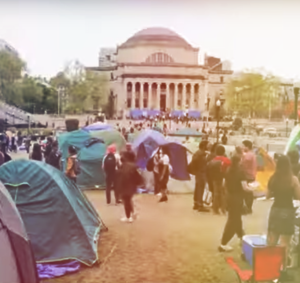
Free Speech Protections Threatened Under Trump Administration
On March 4, 2025, President Donald Trump threatened to cut federal funding to colleges that permit what he calls “illegal protests.” This statement on social media has sparked a wave of reactions from civil rights groups as a direct attack on fundamental freedoms such as speech and assembly.
In his post, Trump echoed ideas from previous executive orders, including his 2019 order and one issued in January, which specifically targeted pro-Palestinian student protests on college campuses, calling them antisemitic. But Trump’s latest comments go further, asserting that any protest deemed illegal would lead to harsh consequences, including the imprisonment of agitators and expulsion or arrest of American students. The details, however, remain unclear, particularly around how the government would define “illegal protests” or the enforcement of such measures.
Trump’s latest threat has reignited concerns about the balance between freedom of speech and government intervention on college campuses. It also raises important questions about the rights of students, faculty, and protesters in the context of broader political and social movements.
Guest – Attorney Mara Verheyden-Hilliard from the Partnership for Civil Justice Fund and the Center for Protest Law and Litigation in Washington, DC. Mara is one of the nation’s leading litigators defending protesters and winning numerous reforms in police practices at mass assemblies and demonstrations.

———————–























